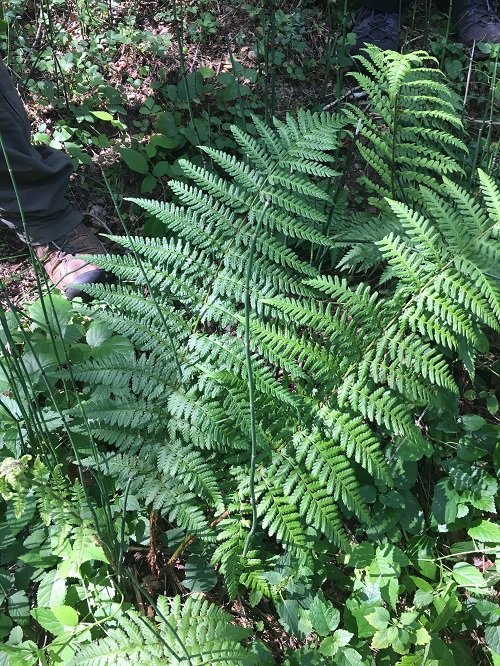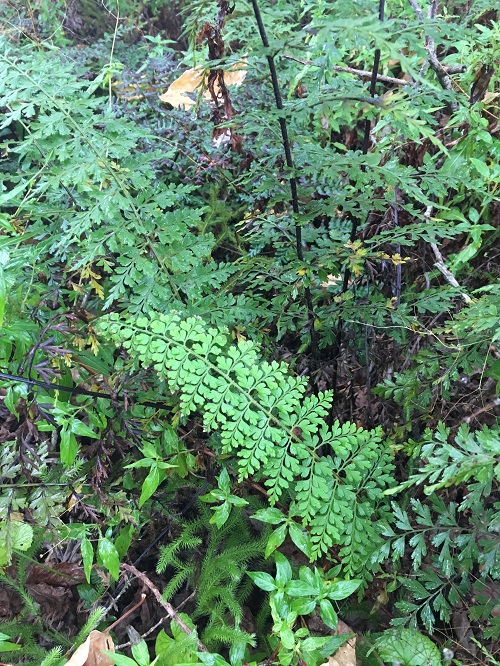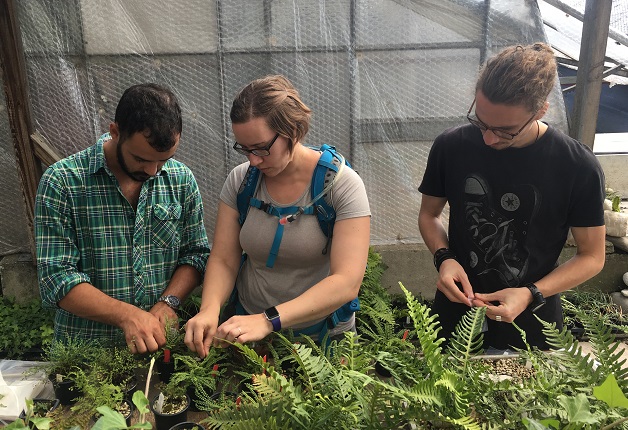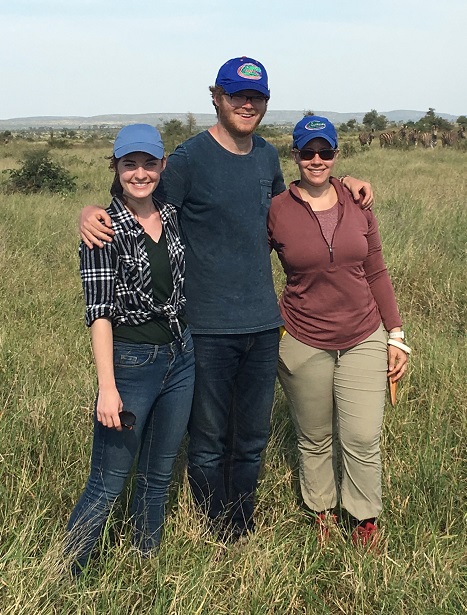About the department: I am an Assistant Professor in the Department of Biology at the University of Florida. We are a broad biology department, so my colleagues are a mix of empirical and theoretically-oriented scientists working on many different organisms and systems. We have a strong graduate program with phenomenal graduate students!
About the research: The goal of my research program is to understand the evolutionary and ecological processes that shape plant diversity. I’m particularly interested in the seed-free plants, ferns and lycophytes, which are beautiful and wonderful plants that are fascinating for a number of reasons. Many aspects of their ecology and evolution differ from what we see in other land plants, and ferns and lycophytes are critical members of the ecosystems where they occur, even though they typically get less attention than their flashier relatives (the flowering plants). Most of the work in my lab is focused on ferns, and phylogenies are the framework we use to understand evolution in nearly all of the work that my students and I do.
What has been the biggest challenge as a new PI so far? Learning all the intricate details of dealing with various bureaucracies, both at my institution and at funding agencies. For example, submitting full proposals to NSF or NIH is a whole different ball game from submitting proposals to societies for graduate student or even postdoc funding. There are so many rules to follow when you go through an institution, and no one sits you down and explains it all to you – you have to figure it out as you go. That was very time-consuming and exhausting the first time I submitted a proposal to NSF as a new PI! I would advise all new PIs to give yourself weeks (literally) to figure out how to do your submissions, and identify your grant support people early on, as they will be critical to your success.
How do you/will you approach mentoring new lab members? I see my graduate students as partners and collaborators. My goal is to help them be successful on a path that will lead to the happiest and most fulfilling life possible, whatever that means for each of them. For some graduate students it may be pursuing a career in academia, while for others it might mean working for the national park service, or pursuing a career as an artist or writer. Success as a mentor, to me, means that my students are happy and healthy, above everything else, and that they trust me to always be on their side and be an advocate for them.
When was your first Evolution Meeting, and how did it affect your career? My first Evolution meeting was Snowbird in 2013, and it was totally different than the conferences I had attended before, which were more organismally-focused. I was really amazed to hear theoretical talks by well-known people in the field, and also to hear developers of the software I used every day talking about flaws in their programs and how they were improving them. It gave me a deep sense of this field as constantly evolving, because for the first time I was hearing in real time about how the methods, tools, and even theory that we use are constantly being tweaked. That was a profound realization for me, that evolution as a science is a living, constantly changing thing.
Besides research, how do you promote science? I am active on Twitter, and I try to do local science outreach events as often as I can. I’ve been involved with science events for Girl Scouts in my community, and with an event called “Talk Science with Her” that gives the public an opportunity to chat with a bunch of women scientists in various fields (at a local brewery, which is great!).
How do you think evolutionary research benefits society? I think evolutionary research has profound lessons to teach us about life on earth and our relationship to other living things, both genealogically and philosophically. The major insight of evolution for humanity, to me, is that we are not some pinnacle or ultimate expression of progress. We are the same as every other organism on this planet – we have been evolving just as long, and by exactly the same set of processes, as an amoeba or toadstool. We are not above them. If we could embrace this principle and make it a way of life, it might go a long way toward halting the destruction of the planet that our species seems hell-bent on.
Do you have a time management tip to share? First and foremost: USE A CALENDAR. I know people in academia who don’t, and I don’t know how they survive day to day! Calendars are essential for me, and I practice a variation on the “one-hour workday”. I block off time in my calendar in one–three hour blocks, several times a week, that I label “research”. I do this at the start of every semester, when I know what the fixed events in my weekly schedule will be, and then I do not schedule anything over those blocks of time, ever. I force myself to use them for exactly what their label is – research – and usually those end up being the only times I get anything research-related done. In my first year as a PI, I blocked an entire day of the week for this purpose, but that was a disaster. It was far too easy to get to my office in the morning, look at the calendar, and say “I have a whole day to work! I can just spend a little while catching up on email…” and before I knew it the whole day had passed on menial tasks that were important, but definitely were not primary research. The one to several hour block works infinitely better, in my experience.
Do you have a favorite science podcast or blog? I love
In Defense of Plants – it’s a blog plus audio and video content, including interviews with plant scientists, and it covers a huge range of fascinating topics about plants!
What do you enjoy doing in your free time? I’m an avid reader. I try to read every day, and it contributes tremendously to my mental health. I love fiction and how novels help you to explore other places and perspectives than your own. I read at night, before bed, and paper books only – I’ve never been able to get into audiobooks or an e-reader. I love holding a physical book in my hands, and this also helps me to have screen-free time right before going to sleep, which research has shown can help improve the quality of sleep.
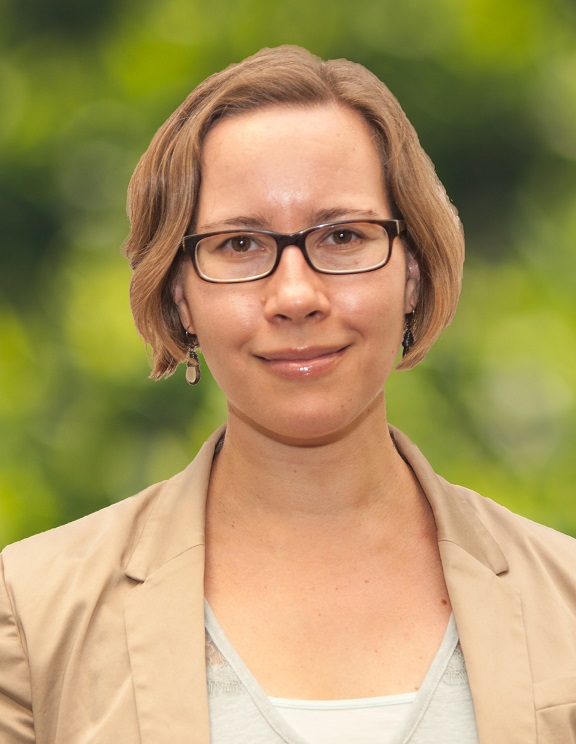 Emily B. Sessa
Emily B. Sessa